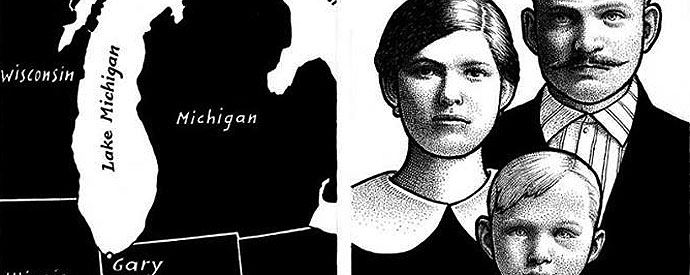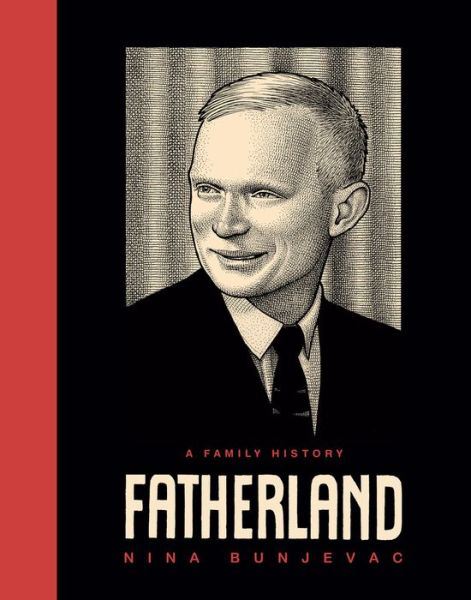Comics /
Comic Reviews /
More Comics
Fatherland comics review

By Leroy Douresseaux
January 20, 2015 - 19:23
 |
| Fatherland cover image is courtesy of barnesandnoble.com. |
Follow me on
Twitter.
Fatherland is a graphic novel from Canadian illustrator and comic book creator,
Nina Bunjevac. Fatherland is a memoir and also a history of Bunjevac's family and of the
Balkans, the homeland of Bunjevac's immediate family. Much of the novel focuses on Nina's father,
Peter Bunjevac.
In 1975, Nina's mother,
Sally, was weary of her husband, Peter's alcoholism. However, she was also increasingly fearful of Peter's growing political fanaticism. He had connected with an organization of Serbian nationalists in Canada and the United States who were determined to overthrow the communist government of Yugoslavia.
Sally took two-year-old Nina and her older daughter,
Sarah, and moved to
Zemun, Yugoslavia to live with her parents,
Momirka and
Spasoja. Sally told Peter that it was only going to be a short visit, but he would not let her take their oldest child, a son,
Petey, on the trip. With his wife and two daughters gone, Peter Bunjevac continued his activities, as his family's present, just as his family's past, become ensnared in the history of the fatherland.
THE LOWDOWN: Above the title on the cover of
Fatherland are the words, “A Family History.” This wonderful and engaging graphic novel is indeed a family history, but this comic narrative insists that families are not simply individual units of people that exist outside of the goings-on and happenings of the world. Indeed,
Fatherland insists that the creation of a family is firmly rooted in the history of land or nation. A family's conception can only exist by the actions of the past, which act as a kind of fertile plain or earth from which relationships spring.
Reading
Fatherland, there were times when I could not separate the story of the Balkans from the story of Peter Bunjevac's family and ancestors. I think that is what Nina Bunjevac wants. She makes 150+ pages of graphical storytelling seem like an epic novel of family and history spread out over two continents and taking place in several nations.
In
Fatherland, her exquisitely rendered black and white drawings are like a marriage of cross-hatching and stippling. They have a quality that is photographic, dream-like, and earthy. That may be why this true story felt so real to me. I had not heard of Nina Bunjevac until W.W. Norton & Company sent me a galley/advanced reading copy of
Fatherland. Still, her storytelling welcomed me into the part of her family story that she wanted to reveal to readers through
Fatherland.
By the end of it, the loss of life that is the center of
Fatherland stung. Why should it? I don't know these people, but Nina Bunjevac made me care enough about them to be hurt.
POSSIBLE AUDIENCE: Readers looking for biographical graphic novels and graphic memoirs will want to visit
Fatherland.
Rating: A /10
Last Updated: January 17, 2025 - 08:20
